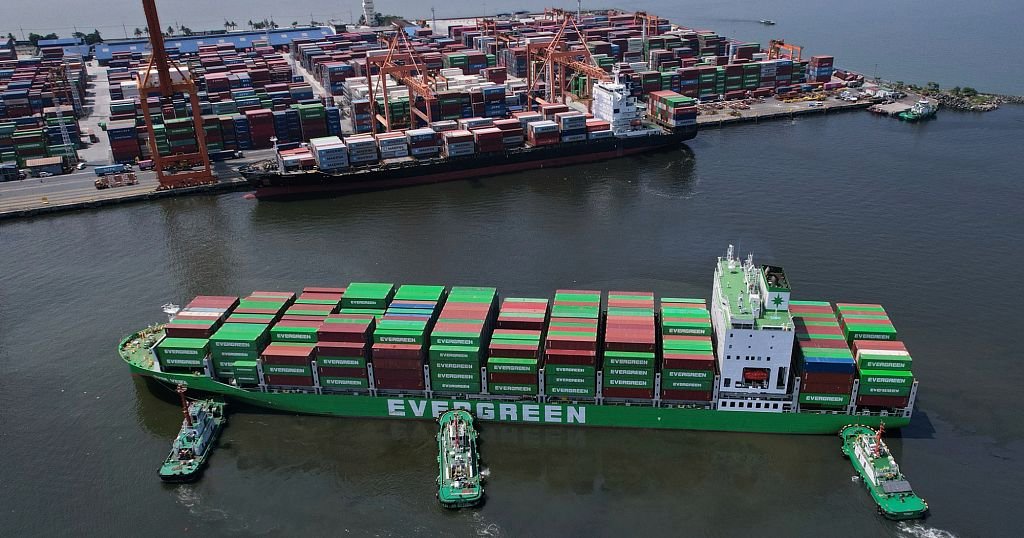Africa
Major nations agree on first global tax on shipping’s greenhouse gas emissions

Many of the world’s largest shipping nations decided on Friday to impose a minimum tax of $100 for every ton of carbon dioxide emitted by ships, if their planet-heating emissions are not already accounted for, making it effectively the first global tax on greenhouse gas emissions.
The fee will be charged if nations have not contributed enough to the International Maritime Organization’s net zero fund and their ships are not meeting their compliance target.
Members of the International Maritime Organization — with the United States noticeably absent — reached the agreement which will become effective by 2028. The group also set a marine fuel standard to phase in cleaner fuels.
Emissions from shipping have increased over the last decade— to about 3% of the global total, according to the United Nations — as vessels have gotten bigger, delivering more cargo per trip and using immense amounts of fuel.
IMO Secretary-General Arsenio Dominguez said at the closing that the group forged a meaningful consensus in the face of complex challenges to combat climate change and modernize shipping.
On Thursday, delegates approved a proposal to designate an emissions control area in the North-East Atlantic Ocean. Ships traveling through the area will have to abide by more stringent controls on fuels and their engines to reduce pollution.
The IMO, which regulates international shipping, has set a target for the sector to reach net-zero greenhouse gas emissions by about 2050 and has committed to promoting fuels with zero or near-zero emissions.
The Marine Environment Protection Committee, which is part of the IMO, has been in meetings all week in London and finalized its decision Friday.
One major issue during the meetings was the way a tax would be charged. More than 60 countries entered the negotiations pushing for a simple tax charged per metric ton of emissions. They were led by Pacific island nations, whose very existence is threatened by climate change.
Other countries with sizable maritime fleets — notably China, Brazil, Saudi Arabia and South Africa — wanted a credit trading model instead of a fixed levy. Finally, a compromise between the two models was reached.
The United States didn’t participate in the negotiations in London, instead urging other governments to oppose the greenhouse gas emission measures under consideration.
The Trump administration said it would reject any efforts to impose economic measures against its ships based on emissions or fuel choice, which it said would burden the sector and drive inflation. It threatened possible reciprocal measures if any fees are charged.
